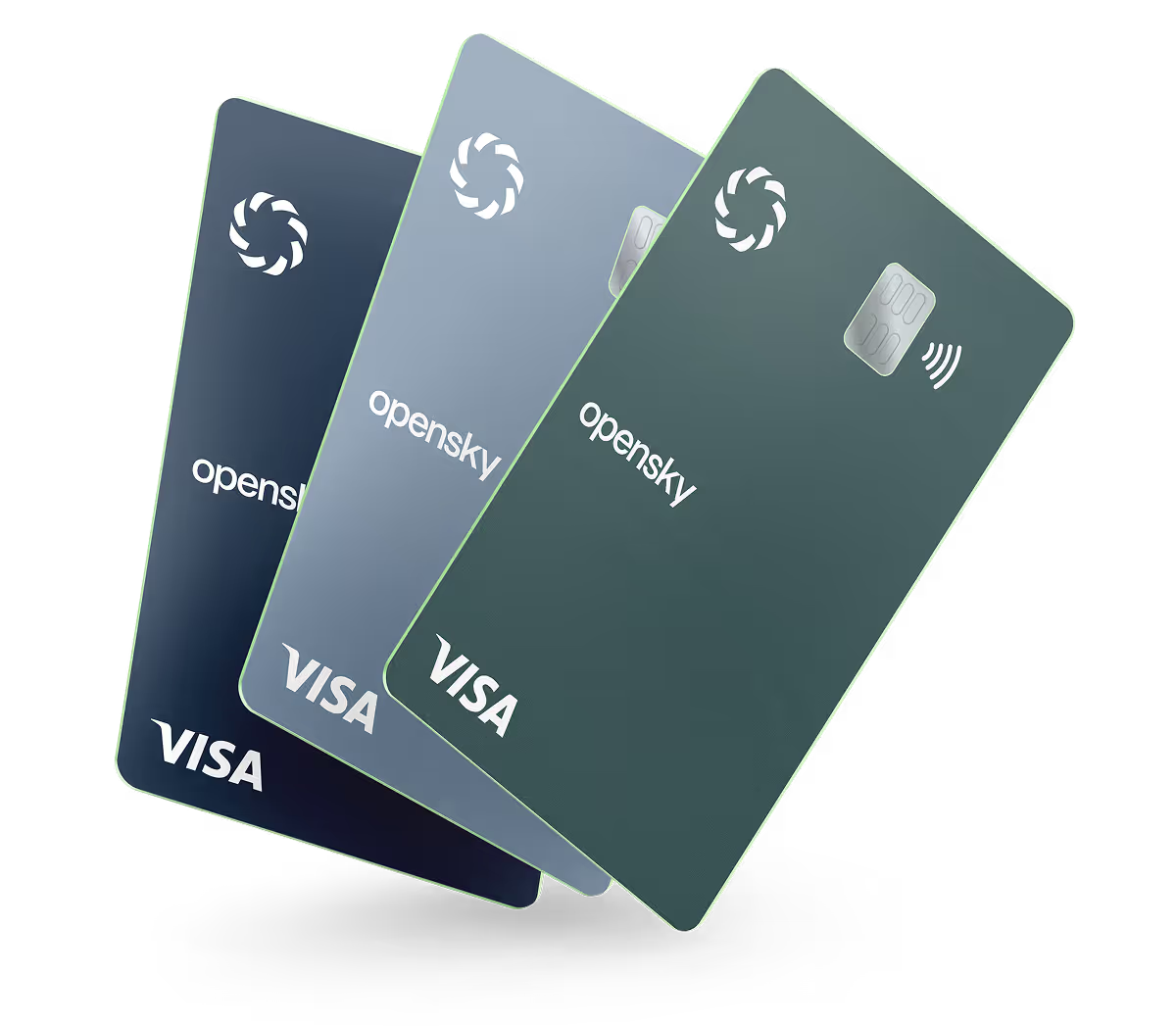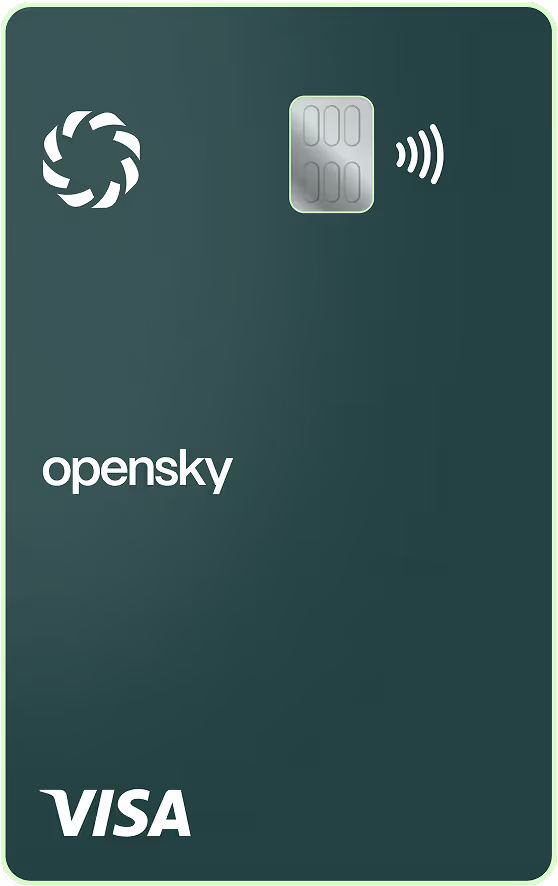How do secured credit card deposits work?
Secured cards can be a great option for credit building, it's important to keep the security deposit requirement in mind...

Why do secured cards require a security deposit?
Secured credit cards are designed as a mechanism to help people with little to no credit history as well as those looking to rebuild their credit. Because these applicants may present more risk, they require a cash deposit upfront as collateral. The deposit is usually refundable, but the issuer holds it and only uses it if you default on your balance.
Unlike unsecured or traditional credit cards, where your credit limit is based on your credit profile, a secured card's limit matches your deposit. For example, a $500 deposit would typically give you a $500 credit limit.
Can you pay your credit card bill with the security deposit?
No, you cannot use your security deposit to pay your monthly bill. The security deposit exists as collateral against cardholders whose accounts become delinquent.
Can I change my security deposit?
Many secured card issuers allow cardholders to add funds to their deposit and increase their credit limit. Using your card responsibly could also lead to automatic limit increases, which can help boost your credit score.
How much do secured card deposits cost?
This can depend on each secured card issuer. opensky offers secured credits for as low as a $100 security deposit, which would equal the credit limit. With card issuers in general, you can always deposit more than the minimum amount required, but most secured cards have a maximum you can't go over. Because your credit limit is equal to or tied to your security deposit, it varies based on how much you put down initially. In some cases, you may be able to add additional funds later. The good news is that the more you demonstrate good credit usage, the closer you get to qualifying for unsecured cards—which don't require a security deposit, have higher limits, and better rewards and perks.
How to submit a deposit on a secured credit card
You’ll likely pay the security deposit when you submit your application for a secured credit card. However, the timing can vary from card to card.
1. Determine your budget
Because the security deposit is required upfront, it's essential to determine how much you can afford before applying. If you need help deciding how much to put down, consider starting with a smaller amount like $200. You may also be able to take advantage of features such as layaway, at issuers such as opensky.
However, if you can, putting down a larger deposit can help improve your credit score by increasing your available credit and keeping your credit utilization ratio low. Plus, having a higher limit means your credit score is less likely to be negatively affected by your spending.
2. Choose a card
When choosing between cards, be sure to compare deposit requirements, fees, interest rates (APRs), rewards, and potential upgrade options. Consider not just the initial deposit but also the ongoing costs to make sure the card fits comfortably within your budget. If you have a lower score, you may want to focus on cards that don't require credit checks.
If you're thinking of opening a secured credit card with opensky, our applicants have an 89% approval rate.1 Cardholders typically see an average 47-point increase in their credit score within the first six months.2
3. Submit an application
You can usually apply for a secured credit card online through the card issuer's website. When filling out your application, you’ll likely need to have this information on hand:
- Full legal name
- Social security number (SSN) or individual taxpayer identification number (ITIN)
- Street address
- Phone number
- Employment status
- Annual income before taxes
- Housing costs (rent or mortgage)
4. Submit your security deposit
To quicken the process, you may be able to fund your card during the application process. Again, this can vary from card to card—some issuers may allow you to make the deposit after you’re approved but before you activate the card.
Keep in mind that you may also need to pay additional fees, such as application, processing, or annual fees to open your account. The good news is that you can pay these with a debit card, so all you have to do is ensure you have enough funds to cover the initial amount.
5. Start using your card
Once you receive your secured credit card in the mail, you can use it to make everyday purchases, like buying groceries or booking a vacation. Just remember to stay on top of your spending and pay your monthly bill on time. That way, you'll start building or improving your credit in no time.
Want tips on best practices for using a secured credit card? Learn more about strategies to build or rebuild your credit.
When do you get your security deposit back?
You'll get your deposit back when you close your account in good standing—meaning you've paid your balance in full. Some credit card issuers automatically upgrade you after a series of on-time payments. If your card doesn't offer a clear upgrade path, you can always apply for an unsecured credit card on your own.
If you feel you've outgrown your secured credit card and decide to close the account, you'll typically get your full security deposit back. However, closing credit card accounts can reduce your available credit and potentially lower your credit score, so it's best to keep the account open if possible.
In summary
A secured card can be a helpful tool for building credit, especially if you have little to no credit history or are working to improve a low score. When you apply, you'll need to make an initial security deposit, which is usually equal to your credit limit. While putting up a bigger sum of money upfront may feel scary, choosing an amount that’s right for your budget is essential—it can help set you up for financial success. No matter what the amount is, by using your card wisely and keeping your spending in check, your credit score will thank you in the long run.
1 Based on Q4 2024, opensky Secured Visa® Credit Card average approval rate is 88.93%. Individual approval results may vary.
2 Based on Q4 2024, 65% of opensky customers increase their score by 47+ points after 6 months.
Takeaways
- A security deposit for a secured credit card is a cash deposit used as upfront collateral.
- The security deposit is usually equal to the credit limit for the cardholder’s account.
- A security deposit can be returned to the cardholder if they close their account in good standing, meaning the balance has been paid in full.
Frequently asked
What is a "secured" credit card?
A secured credit card requires a one-time refundable security deposit to open and is equal to your credit limit. For example, if you deposit $100, your credit limit becomes $100. The beauty of the opensky secured credit card is that you can open an account without undergoing a traditional credit check. This is especially beneficial if you have a poor credit history or no credit history at all.
How much will a secured credit card raise my score?
Your rate of improvement depends on a few factors, including your current status, payment habits, and your management of this and any other lines of credit. Opensky is designed specifically to help people improve their credit fast, with an online/mobile app and tools like alerts to help monitor your account. Plus you will get considered for credit line increases that turbocharge your growth.
How can I obtain a copy of my credit report?
Federal law states that you can get a free report from each of the three nationwide consumer credit reporting companies - Experian®, TransUnion® and Equifax® - once every 12 months. Don't be fooled by offers from companies to pull your credit report or websites that ask for payment to see your credit report; only https://www.annualcreditreport.com/index.action is the official site authorized by the Federal government.
Is there an annual fee for this card? Are there any hidden charges?
Yes, there is a $35 annual fee for the opensky Secured Visa® Credit Card. There is no annual fee for the opensky Plus Secured Visa® Credit Card. Opensky believes in being upfront. There are no hidden fees or charges. All of our pricing and fee information is transparent and can be reviewed (See cardholder agreements at the bottom of this page).
What is a "credit limit" and how is my credit limit decided?
A credit limit represents the maximum amount you can spend on your credit card subject to approval. You decide the deposit amount, which directly determines your credit limit. It can range from as low as $100 to as high as $3,000, depending on the card you choose. The goal is to ensure you can manage payments effectively and succeed in building your credit! *All applications are subject to approval.


.png)



.avif)
.avif)